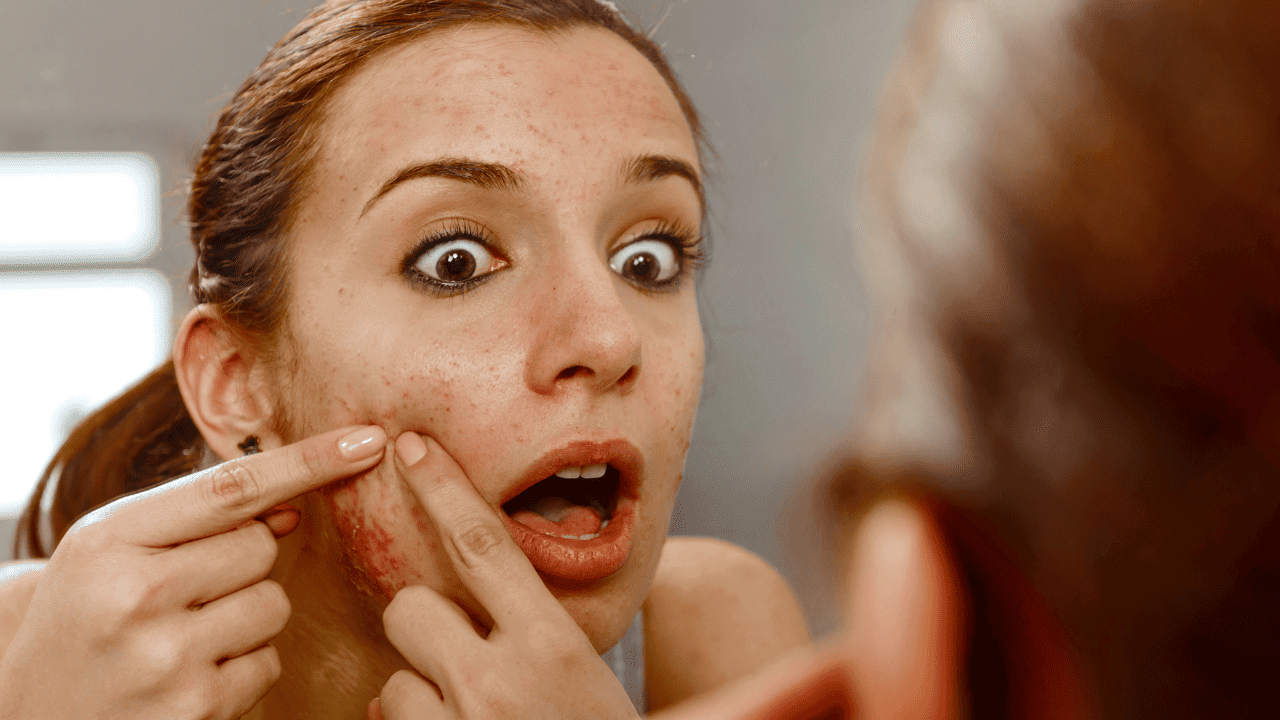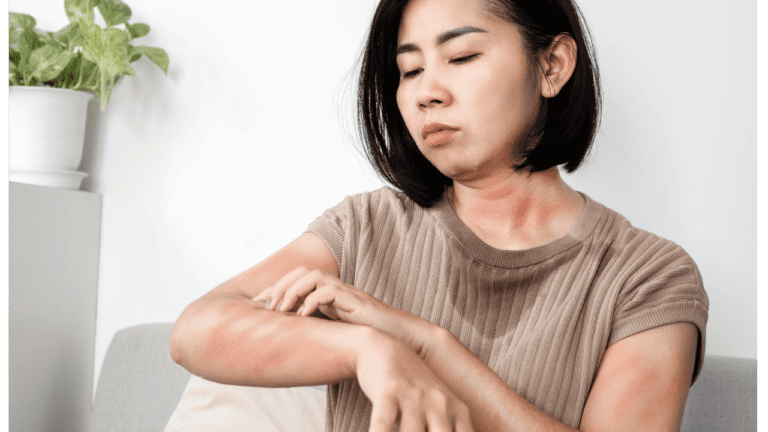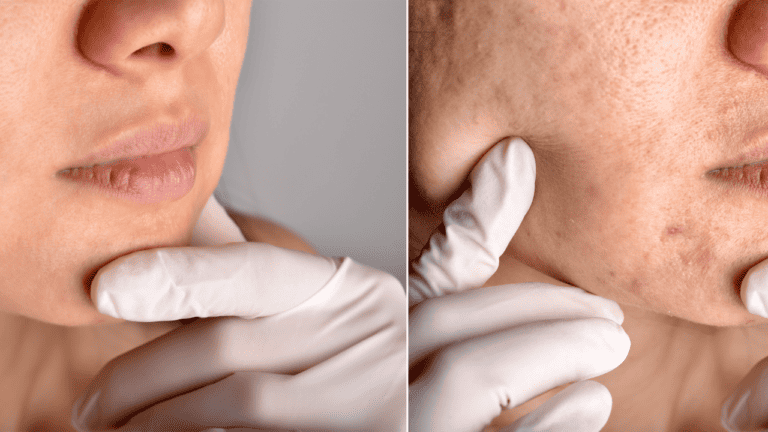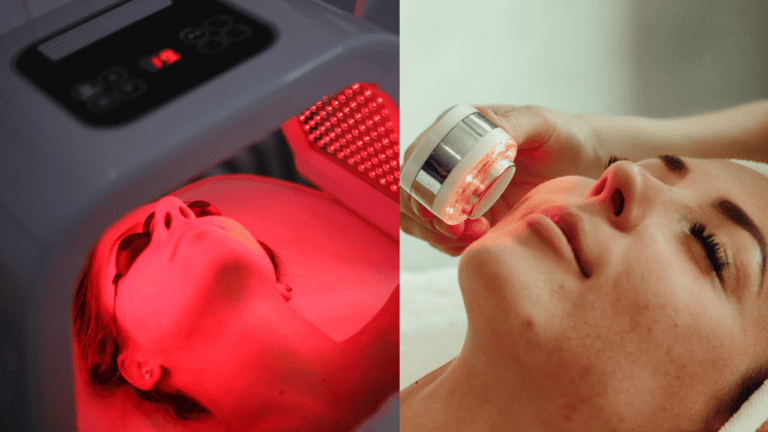This post may contain affiliate links, which means I’ll receive a commission if you purchase through my link, at no extra cost to you. Please read full disclosure here.
Pimples leave holes, otherwise known as, scars, in the skin because the skin was so inflamed that it damaged the surrounding tissue. This leads to a breakdown of collagen, reducing the skin’s elasticity which results in a scar, or a hole.
If your scar looks like a hole, most likely it is an Ice Pick scar, and there are various kinds of scars that pimples can leave behind. Understanding why pimple scars occur and the types of scarring, is the first step to knowing how to prevent them, so you’re on the right track. In this article, we will analyze how scarring occurs, identifying the scars you have and what steps you can take to prevent more scarring from occurring.
Key takeaways
- Pimples lead to scars due to inflammation and damage to the skin’s collagen.
- To prevent pimples from forming holes in the skin, avoid pimple popping and curate a gentle exfoliating skincare routine
- Professional treatments like laser therapy and microdermabrasion, as well as over-the-counter products, can significantly improve acne scars.
The Journey from Pimple to Scar

The Scarring Process
When a pimple forms, our skin’s natural response is inflammation, which is part of the healing process. However, this inflammation can be so severe, especially with cystic acne, that it leads to a breakdown of collagen, the protein that gives skin its elasticity. When the skin doesn’t repair itself perfectly, a scar is formed, and there are various types of scars.
Types of Acne Scars
There are primarily three types of acne scars:
- Ice Pick Scars: Small yet deep holes in the skin’s surface, resembling punctures.
- Boxcar Scars: Round or oval depressions with sharp vertical edges, giving the skin a pitted appearance.
- Rolling Scars: These create a wave-like texture in the skin due to their wide, shallow depth.
Each type of scar requires a tailored approach for optimal results so it’s necessary to identify which one you currently have. Not to fret, dermatologists thoroughly understand how to treat each scar as scarring is more common than you might think. In fact, acne impacts 80% of individuals aged 11 to 30 years, and numerous people suffer from varying degrees of scarring.
Inflammation’s Role
Inflammation is the key player in the scarring process. The longer a pimple is inflamed, the greater the risk of scarring. That’s why it’s crucial to treat acne promptly and there are various ways to decrease inflammation for pimples such as using a cold compress, ice-rollers, stress management or using ingredients such as tea tree oil or aloe vera.
Also, avoid practices like pimple-popping, which can prolong inflammation and increase the likelihood of scarring.
- Read More: Best At Home Cryo Tools To Reduce Inflammation
- Read More: What happens if you freeze a blind pimple
Preventing Pimple Scars/holes
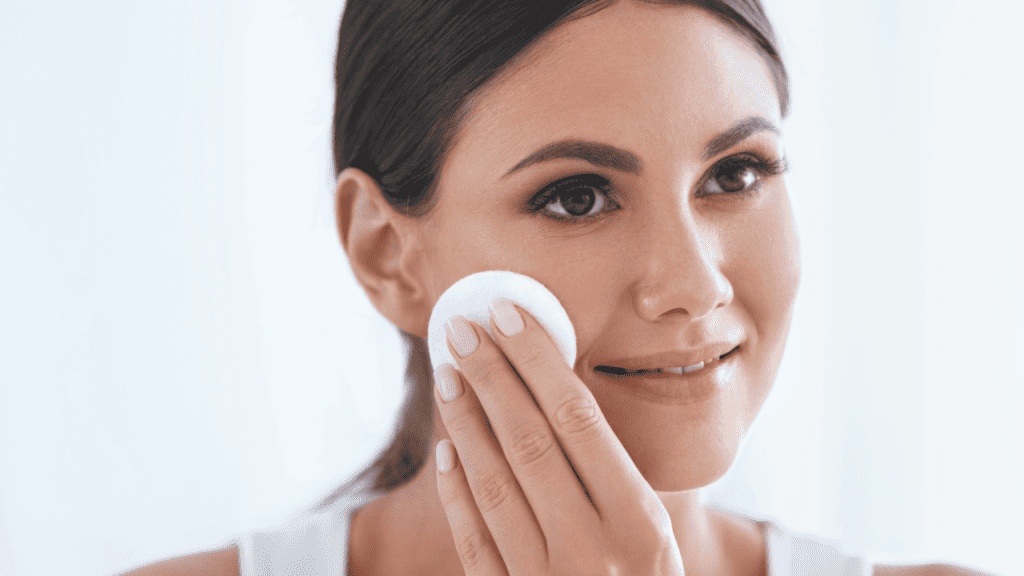
Early and Effective Acne Management
Preventing scars begins with controlling acne from having the chance to appear. For cystic acne, dermatologists have mentioned that over-the-counter (OTC) products containing benzoyl peroxide, salicylic acid, or alpha-hydroxy acids can be effective for mild acne. They help by reducing oil production, speeding up skin cell turnover, and fighting bacterial infection.
For more severe acne, dermatologists might recommend accurate, birth control, hormonal control measures. However, for more severe acne, it’s important that you see a specialist for this.
The right way to exfoliate scars
A consistent skincare routine is crucial. Gently cleanse your skin twice a day to remove impurities, excess oil, and dead skin cells. However, avoid over-washing or using harsh scrubs, as these can irritate the skin and worsen acne. After cleansing, apply a non-comedogenic moisturizer to keep the skin balanced. For those with oily skin, oil-free moisturizers are a great option.
Lifestyle Modifications
Small lifestyle changes can have a big impact on skin health. Ensure a balanced diet rich in fruits, vegetables, and lean proteins. Stay hydrated and limit high-glycemic foods. Manage stress through activities like yoga, meditation, or regular exercise, as stress can exacerbate acne.
The Don’ts: Popping and Picking
Resist the temptation to pop or pick at pimples. This not only risks scarring but can also push bacteria deeper into the skin, causing more inflammation and potentially more pimples.
If your pimple looks white on top and seems ready to top. Try to resist picking it as it will deflate and your body will reabsorb the pus, however if it does pop, try to ensure all the pus is extracted but do not continuously poke and prod it after. If you have a troublesome pimple, consider seeing a dermatologist for a professional extraction.
Professional treatments for scars
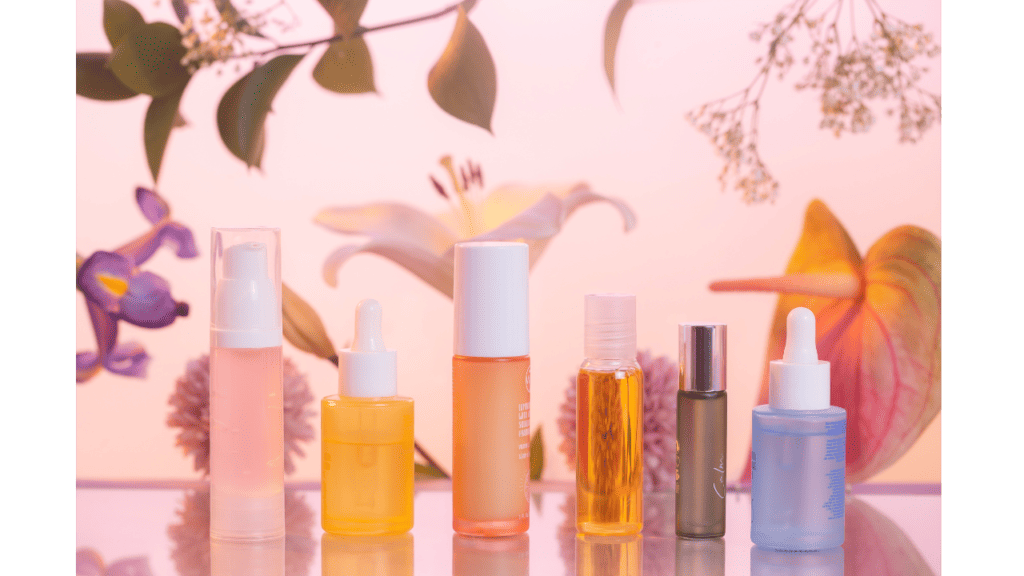
For more severe scarring, professional treatments might be necessary, here’s a few you could consider:
- Laser Therapy: Laser resurfacing treatments can improve skin texture, tone, and reduce the appearance of scars by stimulating collagen production.
- Microdermabrasion: This involves exfoliating the top layer of skin to reduce the depth of scars.
- Chemical Peels: By applying a strong acid, the top layer of the skin peels off, revealing smoother skin underneath.
When to See a Dermatologist
If you’re unsure about the severity of your acne scars or how to treat them, consult a dermatologist. They can provide tailored advice and treatment plans, including prescriptions for stronger medications if necessary.
Conclusion
Pimple’s that lead to scarring that look like holes are often due to acne and high inflammation in the skin. Typically known as Ice Pick scars, dealing with them is not as easy as other type of scarring but knowing understanding why the happen and learning how to prevent them is step 1.
faqs
Can all types of acne lead to scarring?
Yes, all types of acne, especially severe forms like cystic acne, can lead to scarring if not treated properly.
Are acne scars permanent?
While some acne scars can be permanent, many can be significantly reduced or improved with treatments such as laser therapy, microdermabrasion, and topical products.
How can I prevent acne scars?
Preventing acne scars starts with managing acne effectively, avoiding picking or popping pimples, following a gentle skincare routine, and making healthy lifestyle choices.
